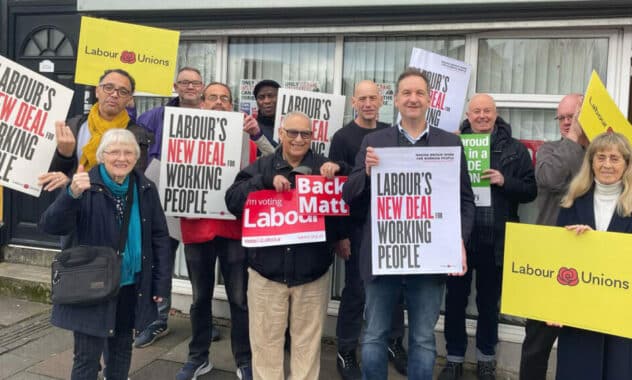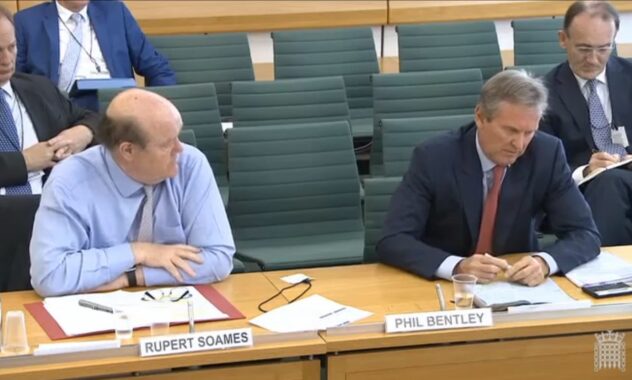Labour’s New Deal on workers rights leaves UK business ‘on edge’
"A battle over workers’ rights is already prompting disquiet across UK boardrooms and will play a central role in the next general election campaign"

We have previously reported on the developing row over Labour’s New Deal for Working People. Now, the Financial Times reports that a series of reforms contained in the policy document are causing concerns amongst the business community, who are urging a more cautious approach to their introduction under an incoming Labour government. The FT state:
“A battle over workers’ rights is already prompting disquiet across UK boardrooms and will play a central role in the next general election campaign as Labour seeks to strengthen the role of unions in workplaces.
Banning zero-hour contracts, ending “fire and rehire” tactics and giving staff protection against unfair dismissal from day one are some of the reforms in a package billed by the main opposition party as a “new deal for workers”.
The measures form part of a broader drive to restore the power of unions and the role of collective bargaining, boost wages and give workers more security and control over their hours and terms of employment. But they are prompting deep unease among business leaders, who say they are ready to work with a Labour government but that many of the proposals could backfire and hit workers as well as employers if they are rammed through without consultation.”
At an event earlier this month, Labour leader Keir Starmer said: “I want to be crystal clear about this, we are going to level-up workers’ rights in a way that has not been attempted for decades” adding that his party’s reforms “might not please everyone . . . in the wider business community”.
Deputy Labour leader Angela Rayner has meanwhile said the reforms would “be a key part of our plan to grow the economy, moving from insecure, low-paid jobs to prosperity . . . and higher productivity”.
Labour’s plans had prompted Rupert Soames, the President of the CBI, to argue for a ‘softening’ of the approach to legislation and he told the FT that his organisation was telling members to “wake up, smell the coffee — this is a major thing that’s coming up”. He added: “It doesn’t mean to say it’s good, doesn’t mean to say it’s bad, but you need to understand the implications.”
Employers are said to be most alarmed at plans that would give workers basic rights – to sick pay, parental leave and, crucially, protection against unfair dismissal – from day one of employment. At present, workers have to wait up to two years for those rights, up from one year under the last Labour government.
“Every so often you hire someone and it’s just clear it’s not going to work out,” said Neil Carberry, chief executive of the Recruitment & Employment Confederation (REC), adding that the change “risked fuelling long, complex litigation”.
Also causing contention is Labour’s pledge to ban zero hours contracts. Business groups say zero-hour contracts often suit workers who want flexibility, and allow employers to offer employee rights to people who would otherwise only be taken on as temps. “You’d want responsible employers to use these things effectively. But how far do you go with legislation, versus encouraging people?” asked Peter Cheese, head of the CIPD.
The FT continues:
“Blunt-edged legislation in other areas could also backfire, businesses say. A ban on “fire and rehire”, where employers use the threat of dismissal to impose worse terms and conditions, could simply lead them to move straight to redundancies, some argue.
Legislating to create a single status of “worker” for all but the genuinely self-employed — a move aimed at helping those in the gig economy, such as food couriers — is also fraught with difficulty, and Labour has promised to consult widely before acting. The Conservatives made the same pledge but failed to follow through, partly because changing the law could create new grey areas.”
One of the key elements of the New Deal for Working People is the restoration of sectoral collective bargaining. Recent announcements have presented it as being “piloted” in social care, rather than the comprehensive roll out envisaged in earlier incarnations of the policy. Nevertheless, it would be a potentially transformative policy for industral relations in the UK. However, Carberry said this first pilot would take years, and establishing a culture of collective bargaining in the private sector would be far harder because “it’s not where we are in the UK”.
The Labour Party has also committed to repealing the anti-strike legislation brought in by the Conservative gvernment over the last year and the 2016 Trade Union Act, which made taking industrial action far more complicated fro trade unions. The FT reports:
“Labour’s vow to strengthen unions’ hand by repealing anti-strike laws passed after the recent wave of public sector walkouts, and 2016 legislation that made it harder to take industrial action, is more clear-cut.
Unions have also won promises to give them greater access to workplaces, a lower bar to winning statutory recognition and the ability to run strike ballots online — a long-awaited change that could make it far easier to take action.”
A poll of the CBI’s membership showed that a clear majority opposed day one employment rights, the repeal of anti-strike laws and sectoral collective bargaining. This is in stark opposition to the fundamental tenets of the New Deal package. It is clear is that the Labour leadership is committed to dialogue with the CBI and other business organisations. The key question is how that dialogue translates to shaping Labour’s general election manifesto, and whether there is the desired ‘softening’ of Labour’s approach.
The Institute of Employment Rights (IER) has been involved in the development of the New Deal for Working People from the start, working with succesive Shadow Employment Rights Ministers to produce a comprehensive package of measures to ‘level the playing field’ for the UK’s 32 million workers. Acting Director of the IER, James Harrison, had this to say about attempts to water down Labour’s approach:
“Who benefits from this alleged balance? It’s never workers, only the balance sheets of shareholders. The CBI have been lobbying governments of all stripes over the last 40-50 years to water down, unbalance, and fundamentally attack and dismantle hard won workers’ rights.
The changes the CBI have lobbied for over this time are why the modern world of work is so intensified, precarious, less safe, and poorly paid for most workers. There is no balance in that. The CBI are in fact the least qualified to lecture us about balance.
What we need is an overhaul of workers’ rights, to level the playing field, making the world of work fairer and more democratic. The entirety of the new deal for workers would move us in that direction.”







